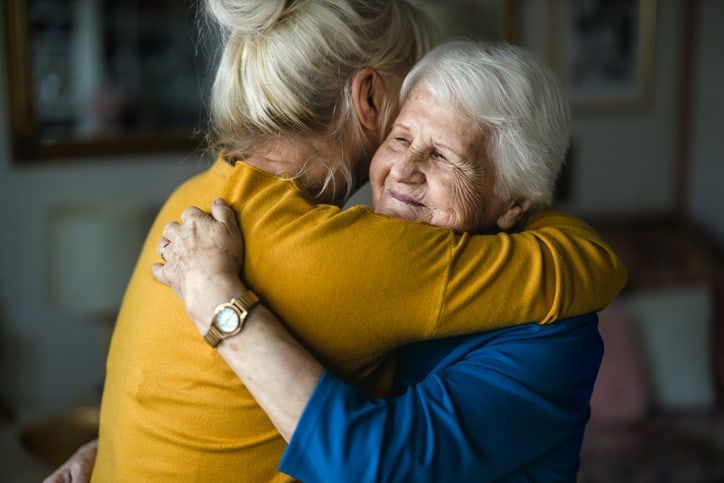Seniors
Want to learn more about this at Kettering Health?
At a Glance
Q: How can I help a loved one with dementia?
A: Focus on safety and independence, not correction. Join their reality and avoid criticism to preserve dignity.
- Dementia causes memory loss and daily task challenges.
- Keep loved ones safe without taking away independence.
- Local resources and medical support can help caregivers.
More than 55 million people worldwide have dementia—an umbrella term referring to symptoms of cognitive decline and memory loss. Symptoms often interfere with someone’s daily life, making them dependent on others.
Dr. Muna Jneidi, a Years Ahead internal medicine specialist, and Dayna Ritchey, Alzheimer’s Association Miami Valley program director, share how to best help a loved one with dementia.
Helping a loved one
When caring for someone with dementia, your instinct may be to go into parenting mode. According to Dayna, this is the worst thing to do.
“Correcting, criticizing, and arguing are the fastest ways to rob the dignity of someone with dementia.”
The most important thing is to keep your loved one safe. Those with dementia may think they’re in the past or mistake you for someone else. Instead of correcting them, which can frustrate them, Dayna suggests meeting them where they are as long as their beliefs and actions aren’t harming them.
“Try to join their reality.”
They might also forget how to do everyday tasks. If you have to take away something like car keys or access to the stove to keep them safe, don’t criticize their mistakes and offer alternative options.
Someone with dementia may do things differently than you would, like eating with their hands, but doing things on their own is more important than doing them the “right” way. Avoid taking things away or doing things for them, unless it’s necessary.
“We want to keep them as independent as possible,” Dayna says. “The more we take away, the less they can do.”
Their doctor is also a valuable resource.
Resources for dementia
Dr. Jneidi says she’s always there for her patients and their families if they need help.
“Every case is different,” she says. “But it starts with a clear discussion of how advanced the dementia is, what they need for help, and how we can provide that help.”
Through social workers and Area Agency on Aging, Dr. Jneidi can connect patients with the support they need, whether it be transportation services, in-home care, or assisted living. The Alzheimer’s Association also offers free resources throughout the Miami Valley area.
Controlling underlying conditions like hypertension and diabetes can prevent complications that worsen memory loss. Medications are also available to help with symptoms of dementia.
But the first step in finding the right support for a loved one with dementia, Dr. Jneidi feels, is accepting that they are aging and struggling.
“When we know there is an issue,” she says, “we can handle it much better than if we turn our heads.”









